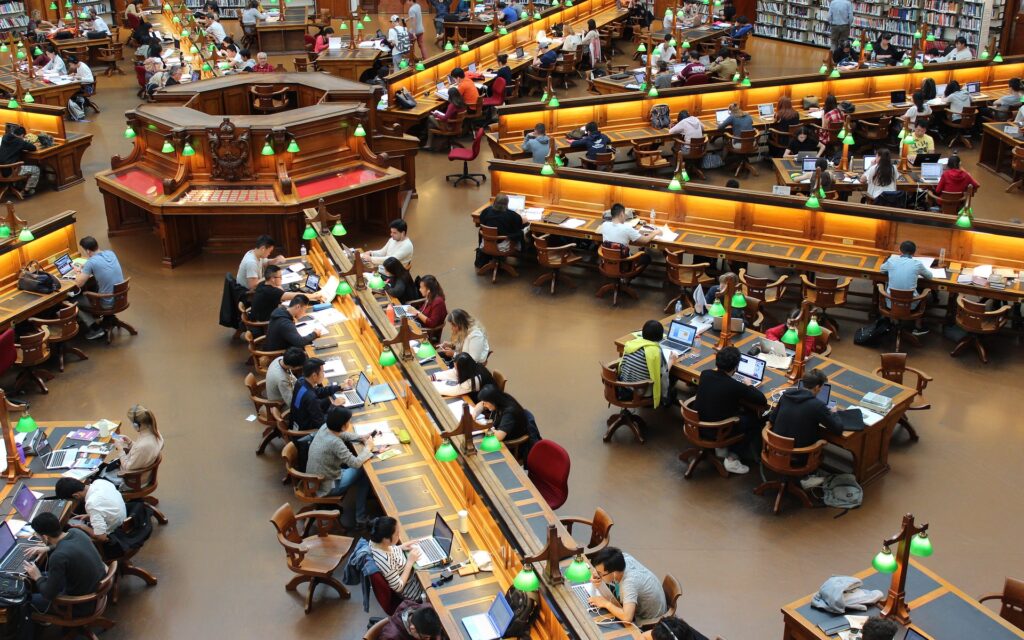 Migration
Migration 
Preventing international students from bringing their families to the UK will risk the major benefits these students bring to Wales, says Isata Kanneh, the Bevan Foundation’s Access to Justice Project Lead
Restrictions to the UK student visa route were announced yesterday, 23 May, as part of the UK Government’s plans to cut net migration. Under the new rules, which will come into force in January 2024, international students, with the exception of those on postgraduate research visas, will not be allowed to bring their families with them to the UK. The “financial requirement” is also set to rise, meaning that students will have to save more to qualify for a visa. An international student with a partner and one child studying in Wales currently needs to show savings of £21,447 plus their course fees.
The Home Secretary, Suella Braverman, stated that the rule changes were “fair” and would enable “the students who contribute the most to keep coming” to the UK. Universities did not seem convinced.
“nonsensical”
The Russell Group is a group of 24, research-intensive UK universities including Cardiff, Oxford, Manchester, and Warwick. Their Chief Executive, Dr. Tim Bradshaw, responded to the announcement by talking about the “fierce” global competition for international students. When asked about the proposed changes in February, Professor Hugh Brady, President of Imperial College, London, called any move that would cut student numbers “nonsensical”.
International students are desired by universities because tuition fees are not capped as they are for UK students, and can be charged at much higher rates. Welsh universities earned just over £185 million from international students in 2015-16. As Dr. Bradshaw pointed out yesterday, international student fees fund education for UK students.
The changes might have a negative impact on university finances, but they are not likely to do much to affect migration. Migrant Journey, a study by the Home Office in 2021, found that only 17% of students granted a Sponsored Study visa in 2016 still held temporary leave to remain in 2021. Of these, 10% were still studying and 5% had switched to a work visa. Far from being a “backdoor route to work in the UK”, Home Office statistics indicate that most overseas students, and their families, leave the UK once their studies are over.
shortage of skilled workers
But what of the small percentage who do take up work? The new rules openly aim to prevent this. In future, international students will not be able to move to a work visa before their studies are complete, making it less likely that overseas students in Wales and the rest of the UK will be able to graduate from university and get a job within the country. The reasoning behind this is questionable. Wales has an ageing workforce. There are significant recruitment gaps in health and social care, and this is reflected across the UK. To overcome these challenges, Wales actively recruits workers from overseas.
The Skilled Worker Visa: shortage occupations list shows the UK job areas that are short of workers. Because of the difficulty of recruiting to these jobs, the amount that workers from abroad need to earn before they are allowed to apply for a visa is reduced to encourage people to apply for these posts. The list is long: there is a shortage of scientists, engineers, economists, statisticians, archaeologists, programmers, artists, veterinarians, graphic designers, care workers, musicians… and more. The deficit in the workforce is the reason that this year’s Spring Budget focused so heavily on stopping workers from retiring and getting people back into work.
Instead of building logically on attempts to boost the workforce by encouraging overseas students to stay, train as much-needed professionals, and take up jobs, the new immigration rules aim target a migrant group that contributes greatly to higher education, high quality research, and the economy. International students generated £716 million of Welsh output in 2015-6 and students and their visitors spent £487 million. The changes will particularly hit non-EU students, who tend to be older and therefore more likely to have families. Non-EU students also have a positive impact on the Welsh economy that is over five times greater than students from the EU.
cultural exchange
The rule changes are contrary to the UK Government’s own International Education Strategy, which aims to enable international students to move into skilled work. The strategy also sets out the importance of “global mobility” and “cultural exchange”. It is hard to see how cultural exchange will be enhanced by tightly restricting international borders. It is like talking to your neighbour with the chain on the door. Universities, like many institutions, are reeling from Covid, Brexit, and the economic downturn. They, and the rest of us, will be culturally and financially poorer as a result of this decision.


